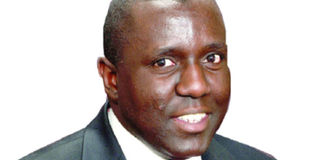Is Lake Victoria starting to suffer a slow death?

Two weeks ago, we landed with a team of surveyors on Ffunve Island in Kyamuswa opposite Kattambwa escarpment. Kattambwa, the place where big animals fell to their death explaining their extinction, is the middle point on the third largest island in the Ssese islands archipelago.
Our landing point was in a private bay, it is not unusual for parts of the lake at any one time to be enclosed by boundary lines on private property. A few things obviously disturbed me. The western lake - one of the most beautiful parts of Lake Victoria, had turned completely green with “Mubiru,” an etrophical manifestation of green algae. The water generally had a dirty colour. Mubiru is a seasonal phenomenon dependent on wind direction, but a good measure of how well or how badly the lake is doing.
The shock this time is how far the green algae “had swum” or how much more water they had colonised.
Prior to 2016 Mubiru simply docked around the north end of Lutoboka bay where the MV Kalangala docks. The waters in this passage to Nakiwogo have been green for years anyway and people stopped noticing long ago. What they have not noticed is that fishing boats disappeared ages ago from this part of the lake.
The entry into the underbelly of the lake comes at a difficult time.
Fisheries officials afraid that the hunt and capture of fish using illegal nets would permanently kill fishing stocks, have with UPDF reinforcement, come down very hard on “illegal fishing”. Livelihoods stand at the brink of collapse as no alternative income exists for most fishermen who themselves are school dropouts without any other viable source of employment. Kalangala District’s Buggala island, home to Bidco, is largely served by migrant labour, who have very little to do with fishing. The campaign against illegal fishing by now would have delivered higher catches of fish, but this new phenomenon may be a disastrous game changer. In many of the 22 gazetted landing sites across the islands of Mawaala, Mulabana, Malanga-Kaazi, Ddajje, and Mwena, fish landings have dropped. Fish traders supplying fish to fish mills on the mainland have downsized their transport(s) to pick up smaller cargoes.
On Buggala island, fish is scarce. Fish is more expensive than beef or chicken.
A 1kg weight equivalent of fish costs Shs16,000, beef Shs12,000 (up from 10,000) after a quarantine on cattle from Masaka District and chicken (broiler or off-layer (Shs13,000) prices above the ordinary pocket. To buy “legal” fish that is not contraband, you have to “book” electronically with a licensed fish monger. Premium family size fish probably requires divine intervention. A dinner of fish stew sets one back Shs30,000.
These developments have grave effect on nutrition and food safety.
The situation on Masaka Road, whose Katonga catchment area adjoins the lake, is not any different. Driving to Kampala on Independence Day, the oversize tilapias caught from breeding grounds nearby were gone. What has happened? Unregulated activities around the lake and in the catchment areas are probably slowly killing the lake.
In Masaka, swamps have been reclaimed for rice production at a scale larger than what the eco-system can handle, destroying wetlands that regularly “clean” the lake. In Kalangala fertilizers from oil palm plantations that have breached the 200-metre excluded zone, have “over fertilized” the lake leading to rapid growth of both plant and animal life - destroying the delicate balance of micro-organisms, minute life forms on which fish thrive, they have also reduced oxygen supply. Fish cage farming where fish are bred in captivity has a big “waste” problem as tons of fish are “abirigating” one area without waste disposal requirements.
Illegal activities like pitsawing and charcoal burning are alive because they are still recognised as revenue generation activities and licences are still being issued. The clear cutting of forests has encouraged siltation, making unsafe lake water used for domestic use. Our lake is on the down, the country will feel this development for a long time.
Mr Ssemogerere is an Attorney-at-Law and an Advocate.




